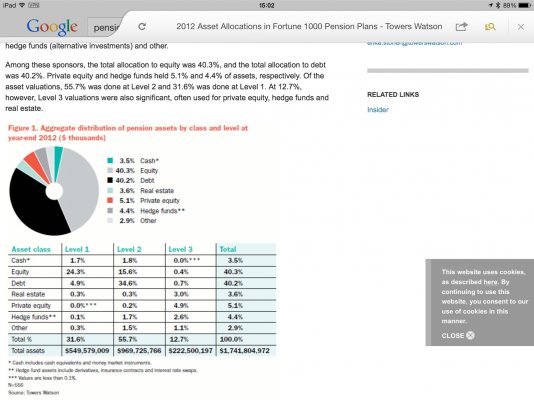enjoyinglife102
Recycles dryer sheets
- Joined
- Jan 6, 2013
- Messages
- 162
The two points of view always expressed are one needs equities and inflation is the devil. There have been many discussions here though about how inflation that people actually experienced over long periods of time was much lower than the government's CPI. So I recommend trying to calculate your personal inflation rate because that's the only one that matters to you. How can anyone offer advice about the impact of inflation without knowing your personal rate? As far as equities, historical numbers (will they be repeated?) say you should own some to enhance your portfolio, but if you can't handle the inevitable fluctuations, then it's not a place to be. My parents never owned a stock, were very middle class with no big nest egg, had a very small pension, collected SS and lived happily into their mid 80's. Laddered CD's will keep you capturing current rates. I don't remember reading stories about how people were ruined, needed to go back to work and/or became desperate because they managed their money too conservatively during the Great Recession.

